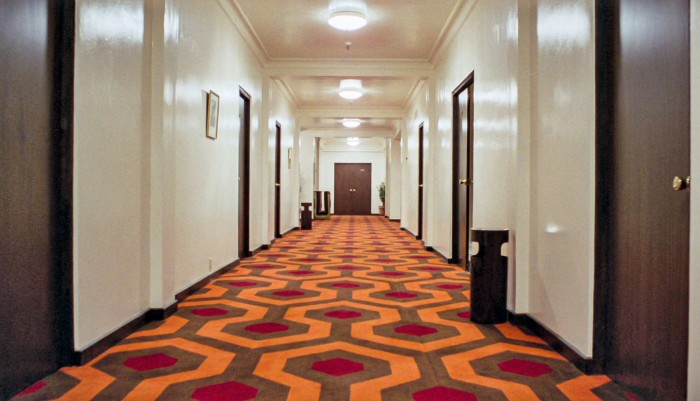Good morning. Today, our Berlin correspondent reports on Germany’s new naval port on the Baltic — and what it means for Nato deterrence — and I have news of other issuers joining the EU in chipping in to the G7 loan to Ukraine.
Baltic fleet
Germany has stepped up its efforts to beef up Nato’s eastern flank with the opening of a new multinational naval headquarters in the Baltic coastal city of Rostock yesterday, writes Laura Pitel.
Context: In the wake of Russia’s February 2022 full-scale invasion of Ukraine, Nato unveiled plans to ramp up its presence in eastern member states. Baltic countries have warned repeatedly in recent months of growing aggression by the Russian navy in the region.
Germany’s defence minister, Boris Pistorius, flew in by helicopter to inaugurate the new Commander Task Force Baltic headquarters. It will be led by a German admiral with deployments of naval officers from 11 other countries.
The headquarters aims to protect key supply routes, trade routes and critical infrastructure. It could lead operations for Nato during a conflict with Russia, which has heavily militarised ports in the Baltic exclave of Kaliningrad and around the city of St Petersburg.
Pistorius said the new facility was a testament to Germany’s resolve in the wake of the Zeitenwende in defence and security policy that was proclaimed by Chancellor Olaf Scholz after Russian President Vladimir Putin launched his attack on Ukraine.
“Our message to our partners and to those who threaten our peace is simple: Germany stands firmly by its commitments,” he said.
Germany is also building a new military base in Lithuania, where a German brigade of almost 5,000 soldiers will be based in the country’s first permanent foreign deployment since the second world war.
Those efforts have been welcomed by Germany’s neighbours and its Nato allies, although large doubts persist about the combat readiness of the German navy and the wider Bundeswehr after decades of under-investment.
In a reminder of the thorny political territory for Pistorius in a country where support for pro-Russia parties has been rising, those attending the inauguration were greeted by demonstrators holding placards opposing western support for Kyiv.
Pistorius at one point interrupted his English language speech to break into German so that he could refute a claim — circulated widely on social media — that the new headquarters would lead to Nato troops being stationed on German soil.
Chart du jour: Bitter divide
Moldova on Sunday voted to reaffirm its commitment to joining the EU in a referendum decided by less than 15,000 votes. In the pro-Russian region of Gagauzia, just 5 per cent backed Brussels.
Cash flow
The UK has said it will contribute $3bn to a G7 loan of $50bn to Ukraine, joining the EU and Canada in making clear their share of the initiative and leaving just the US and Japan to make up the difference.
Context: The G7 agreed this summer to assemble the loan, to support Kyiv’s financial, military and infrastructure needs, as it fights back against Russia’s invasion of the country. The loan will be paid back using profits skimmed from Kremlin sovereign assets immobilised by western sanctions.
The UK government said overnight that it would chip in $3bn (£2.3bn) for “essential military equipment.” Other G7 countries have said their money will be earmarked for various purposes.
The EU, which includes G7 members France, Germany and Italy, has said it will contribute up to €35bn ($38bn) of the loan. But if US officials are able to fulfil their intention to provide $20bn themselves, as the FT reported last week, Brussels would only also chip in the same amount.
With $20bn each from the US and EU, $3bn from the UK and $3.6bn from Canada, that would leave Japan needing to find just over $3bn to make up the $50bn total.
The aim is to get the whole package tied up in a bow this week, during the IMF and World Bank annual meetings in Washington, officials said.
That would bring it on stream before both the November 5 US election, and the onset of what many expected to be an especially brutal winter for Ukraine, as Russian bombing of the country’s remaining heating and power facilities seeks to cripple its civic infrastructure.
What to watch today
-
Slovakia’s Prime Minister Robert Fico hosts Hungarian Prime Minister Viktor Orbán and Serbian President Aleksandar Vučić in Komarno.
-
Nato secretary-general Mark Rutte visits Estonia.
-
Russia hosts a summit of the BRICS group in Kazan.
Now read these
Are you enjoying Europe Express? Sign up here to have it delivered straight to your inbox every workday at 7am CET and on Saturdays at noon CET. Do tell us what you think, we love to hear from you: europe.express@ft.com. Keep up with the latest European stories @FT Europe







































































































































































You must be logged in to post a comment Login